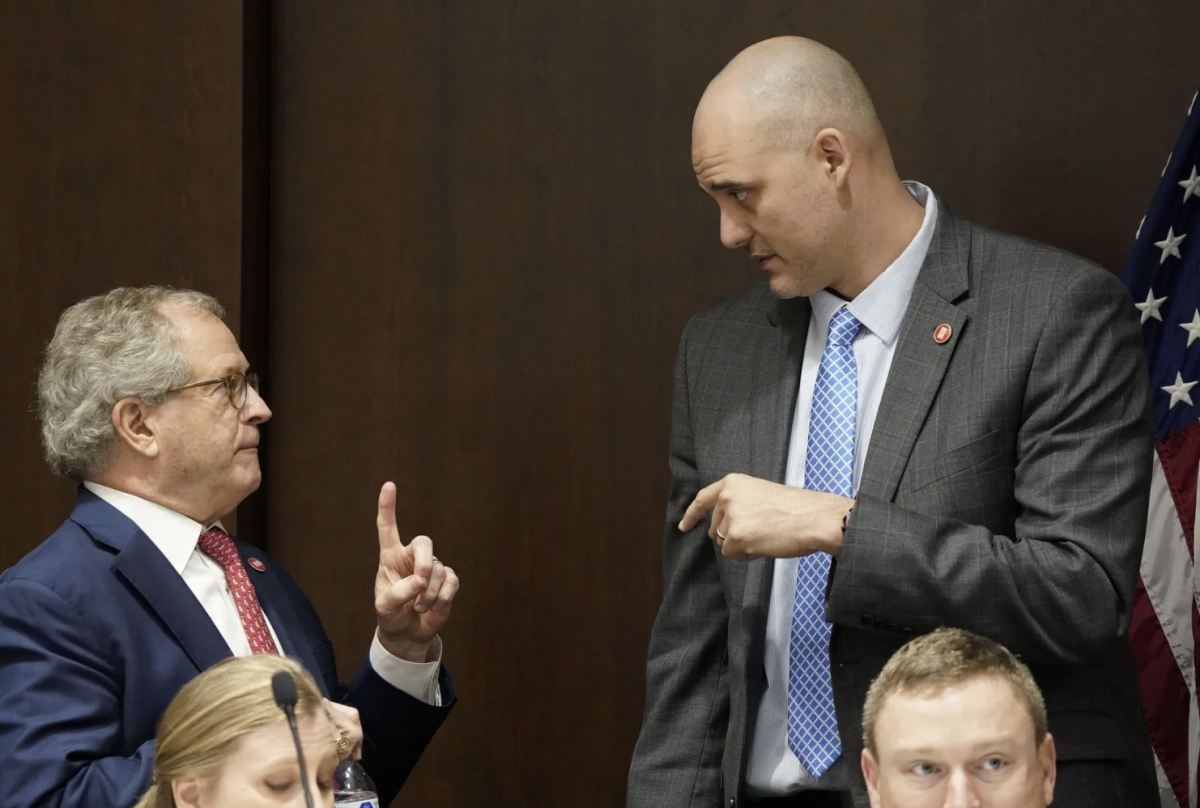Lawmakers have filed at least 18 proposals to try to address concerns about a new Tennessee reading law that could force tens of thousands of third-graders to attend summer school this year to avoid being held back.
Several bills would gut the retention provision altogether, while others would keep the law mostly intact but extend related state-funded summer and after-school programs beyond this year.
Some measures would give authority back to local school districts instead of the state to determine which students should be retained. Others would add measures beyond Tennessee’s annual test for making such a decision. And one proposal would establish a new reading and retention checkpoint even earlier than third grade — making students who are finishing kindergarten take a reading test to determine whether they are ready for the first grade.
All are in response to a controversial law that passed in 2021 during a weeklong special legislative session called by Gov. Bill Lee to address learning disruptions caused by the coronavirus pandemic. The same law created summer learning recovery camps that began that year and tutoring programs that started in 2022.
The interventions have proven popular to help students catch up from the pandemic, but the law’s retention provision — which kicks in with this year’s class of third-graders — has sparked pushback and even outrage.
“It’s upsetting, because it feels like they’re punishing our children,” said Leslie Wallace, whose 8-year-old son is in third grade in Knox County Schools. “At this age, a child is going to be extremely discouraged if they’re held back, especially if they started kindergarten during the pandemic.”
The Republican governor pushed for and has stuck by the law, including the aggressive retention policy, which could hold back third graders who aren’t deemed proficient readers based on state TCAP tests administered each spring.
“If you really care about a child’s future, the last thing you should do is push them past the third grade if they can’t read,” Lee told Chalkbeat last fall before easily winning a second term in office.
But now many lawmakers in the GOP-controlled legislature want to take a closer look at the law’s far-reaching implications for third graders, their families, and schools.
“I’m not saying you should never retain a child,” said Rep. Gloria Johnson, a Knoxville Democrat and retired teacher who voted against the law. “But the decision should be made student by student, by their teachers and parents — not because of sweeping legislation that’s based on a single test score.”
Third grade is considered a critical year for reading because literacy is foundational to all subsequent learning. But reading scores have been mostly stagnant in Tennessee, with only about a third of the state’s third graders meeting the law’s high threshold for proficiency based on state tests.
In 2011, lawmakers passed a retention law to try to address the problem, but the statute was largely unenforced, with few third graders being held back by local school leaders. That set the stage for the 2021 retention provision that, starting this school year, requires third graders to get extra help if they don’t show proficiency on their TCAP test for English language arts.
Backers of the new policy say the law might not be perfect, but they also worry that many Tennesseans don’t fully understand it.
“This was never about ‘fail one test and you’re automatically retained,’” said Rep. Kirk Haston, a Republican who is a teacher, coach, and health education administrator in Perry County. “It’s more about reading identification and providing a lot of supports for students who need help.”
The law says students whose scores on state tests show they are “approaching” proficiency must attend a summer camp and demonstrate “adequate growth” on a test administered at the camp’s end, or they must participate in a tutoring program in the fourth grade. Students who score “below” proficiency must participate in both intervention programs.
Third graders are exempt from retention if they were retained in a previous grade; have or may have a disability that affects reading; are English language learners with less than two years of English instruction; or retest as proficient before the beginning of fourth grade.
Numerous school boards across Tennessee have passed resolutions calling for revisions, though. Among other things, they’ve urged the legislature to let local educators make retention decisions, without giving final authority to the state. And they’ve noted that TCAP is not a reading diagnostic test and, therefore, isn’t the best measure of a student’s reading ability.
It’s little wonder that the retention rule is controversial — because research is mixed, and holding students back is a controversial policy decision in education.
Supporters say having students repeat a grade can spur additional supports that struggling readers desperately need, and that those academic interventions matter, especially in the early grades.
Critics worry that retention falls disproportionately on student groups who are already marginalized, such as those who have disabilities, are economically disadvantaged, or are of color.
Most research suggests that retention has, on average, null or negative effects on students, and that it’s also linked strongly to dropping out of high school.
The best time to intervene in a student’s progression in school is also under discussion in Tennessee. Increasingly, lawmakers and education advocates are recognizing the importance of also providing interventions for struggling students in kindergarten, first, and second grades — instead of zeroing in on third grade.
That’s where discussion veered this week in a House education subcommittee chaired by Rep. Scott Cepicky, a Republican from Maury County, during an exchange with Reginald Nash, a former Memphis kindergarten teacher who now works for The Education Trust in Tennessee to advocate for education equity.
“The General Assembly should consider revising the law to permit students at risk of retention who opt into reading and tutoring at the beginning of third grade, as opposed to after it, and as early as kindergarten, to be promoted,” Nash told lawmakers. “This approach could possibly be easier to implement, requires less bureaucracy to track, and proactively gets more students into reading tutoring before and during third grade.”
Cepicky, who is co-sponsoring a bill that could delay kindergarten entry for many children and add another retention gate before kindergarten, clearly liked the idea of programs and policies directed toward students before they fall too far behind.
“We have to do something in early education to change the dynamic that we have right now,” he said. “We can’t keep going with the status quo.”
Before the 113th General Assembly convened last month, revisiting third-grade retention topped most lawmakers’ list of education priorities this year based on feedback from constituents.
The large number of proposals filed by this week’s bill-filing deadlines bore that out as Republican leaders shared their plans for sorting through the barrage of legislation.
Senate Education Committee Chairman Jon Lundberg said Thursday he’ll let the House take the lead in vetting the proposals, with hopes of eventually bringing a consolidated bill before his panel.
In the House, the first focused look is set for Feb. 14, when all of the bills are laid out before an education subcommittee chaired by Haston.
“We’re just trying to get organized,” said Haston, who added that he doesn’t expect votes for several weeks. “We want to get everything on one calendar to see the lay of the land.”
As part of the process, Rep. Mark White, who chairs the full House Education Administration Committee, has scheduled a Feb. 22 hearing to discuss early childhood literacy. Nine legislators are new to his 19-member committee, and White said he wants them to understand the big picture before voting on any potential revisions to the 2021 Learning Loss Remediation and Student Acceleration Act.
Among those testifying at the hearing, he said, will be a range of literacy experts, from third-grade teachers and school superintendents to Tennessee’s education chief, Penny Schwinn, and education officials in Mississippi, where students improved the most on national reading tests in 2019.
In the meantime, Tennessee schools have been sending out information and hosting meetings with parents of third grade students to inform them about what the law means for their child.
But many parents like Wallace, in Knoxville, are afraid.
“I appreciate the interventions being put in place, but I don’t appreciate the threat that my child could get held back if he doesn’t score high enough on a test,” she said. “I don’t feel like it’s a conducive environment for learning.”
The Education Trust has compiled a list that summarizes and analyzes each retention-related bill.
Marta Aldrich is a senior correspondent and covers the statehouse for Chalkbeat Tennessee. Contact her at maldrich@chalkbeat.org.
Chalkbeat is a nonprofit news site covering educational change in public schools.









